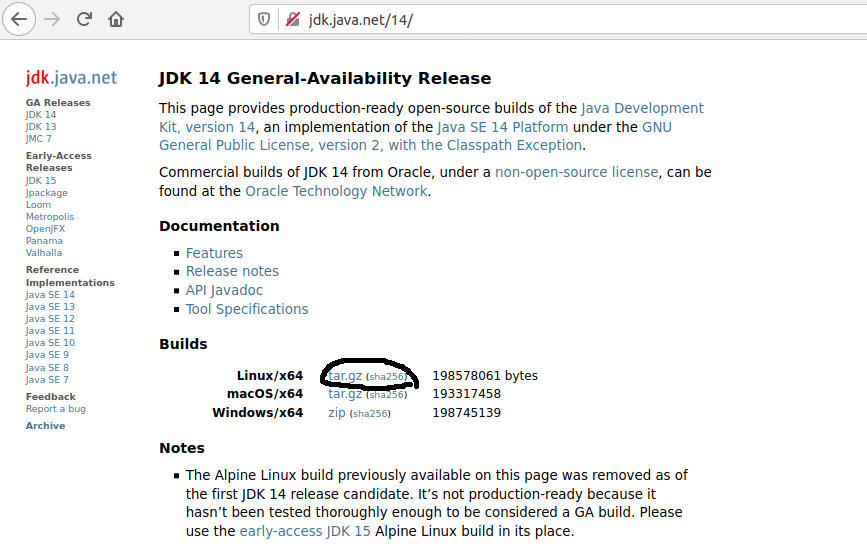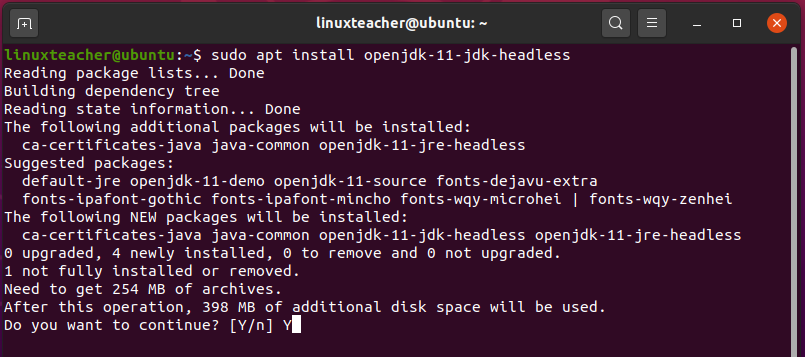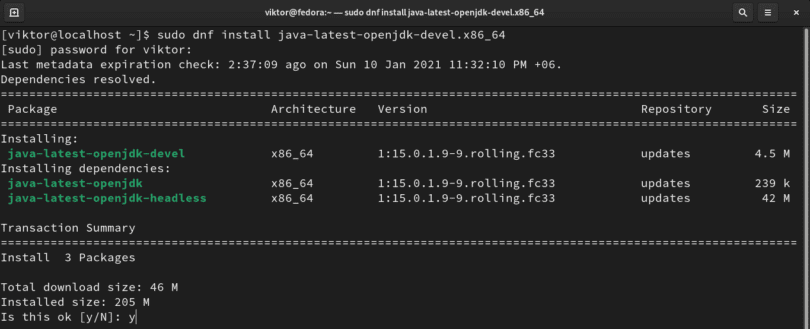
- #INSTALL OPENJDK 11 ON LINUX HOW TO#
- #INSTALL OPENJDK 11 ON LINUX INSTALL#
- #INSTALL OPENJDK 11 ON LINUX DRIVER#
- #INSTALL OPENJDK 11 ON LINUX ARCHIVE#
- #INSTALL OPENJDK 11 ON LINUX FULL#
#INSTALL OPENJDK 11 ON LINUX ARCHIVE#
#INSTALL OPENJDK 11 ON LINUX INSTALL#
After creating an Oracle account, verify your email.įollow the steps below to install Oracle Java on Ubuntu/Linux: If youĭo not already have an Oracle account then you can Create a new Oracle Account here. The new Oracle policy requires you to have an Oracle account before you can download Oracle Java. To install Oracle Java basically involves downloading, installing, and verifying the Java JRE_HOME=/usr/lib/jvm/java-11-openjdk-amd64/jre JAVA_HOME=/usr/lib/jvm/java-11-openjdk-amd64 Open your terminal and edit the /etc/environment file using the nano command:Īppend the following lines to the environment file and save it:

You can install the other versions by replacing 11 with the Java version of your requirement. In this example, we are installing Java 11. Open your terminal and run the following commands one by one:.To install Java OpenJDK via your terminal, follow the following steps: You may need to buy a license from Oracle if you want to use the official Oracle JDK in a commercial setting. Whereas Oracle Java is optimized and starting from Java 11, Oracle uses a new commercial license for Java. You can either install Java OpenJDK or Oracle Java. The process for installing Java on Ubuntu and Linux are
#INSTALL OPENJDK 11 ON LINUX HOW TO#
#INSTALL OPENJDK 11 ON LINUX DRIVER#

It’s also possible to use git and makepkg to download AUR packages manually, but the process is much more concise if we just use yay, so that’s the method we’ll be using below. You can install a package from the AUR by configuring access to it in pamac or installing an AUR helper like yay. In order to install Oracle Java, Manjaro will need access to the Arch User Repository (AUR), as Oracle Java is not available in any official repository. $ sudo pacman -S jre7-openjdk-headless jre7-openjdk jdk7-openjdk openjdk7-doc openjdk7-src $ sudo pacman -S jre8-openjdk-headless jre8-openjdk jdk8-openjdk openjdk8-doc openjdk8-src $ sudo pacman -S jre11-openjdk-headless jre11-openjdk jdk11-openjdk openjdk11-doc openjdk11-src $ sudo pacman -S jre-openjdk-headless jre-openjdk jdk-openjdk openjdk-doc openjdk-src Use the appropriate one for whichever Java version you wish to install. The following commands will install the five packages as explained above. JDK = Java Development Kit, always needed for developing Java programs.

#INSTALL OPENJDK 11 ON LINUX FULL#
Full JRE = full Java runtime, used for executing GUI Java programs.Headless JRE = minimal Java runtime, used for executing non-GUI Java programs.You can also choose between version 7, 8, 11, or 14 from the official repositories.

The packages you need will depend on what kind of programs you’re developing. All of the OpenJDK packages can be installed in terminal with pacman.


 0 kommentar(er)
0 kommentar(er)
